What is truth? Is your truth the same as my truth? I’ve invented a truth machine. That may help. But what if we’re in the Matrix? How does the mind connect to the body? Let’s talk to some philosophers about it. Ready?
I invented the CounterChecker to check truth. It’s the ultimate fact-checking machine. I’ve decided I’d like my peers in the field of philosophy to help me administer it. It isn’t just for answering political questions to see whose lying. It’s a great little tool for sorting out hard problems that philosophers deal with – like how the mind is connected to the body.
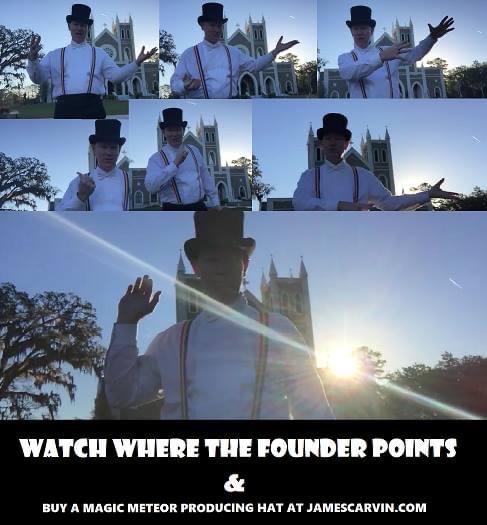
Philosophers are a unique kind of people. They seem to specialize in all the reasons you may be wrong. They poke holes in arguments. They are like the raptors in Jurassic Park, finding the weak spots in electric fences. They are on the hunt for reasons for uncertainty. Some of them even become lawyers.
As annoying as this may be at times, staying connected in peer review is also very useful. Of course, I know that not everybody really wants the real truth and nothing but the truth to be uncovered. There are some people who have dirty secrets. The last thing in the world they would want is for those things to be exposed. That’s one reason I trust philosophers more than politicians to administer truth machines.
On top of that, controlling what people think is somewhat of a requirement for getting votes. Covering up the truth can be just as vital for a politician as discovering it. Politicians and political powers have a built-in conflict of interest when it comes to administering a truth machine. That’s one of the reasons why my top-tier, do it before I die project, is the establishment of a philosophical society rather than a political organization.
Did you make your list of things to do before you die, like I asked you to? Send me a link. I want to see it. It’s funny how those lists work. I ask people to make a list of all the things they could do to maximize awesomeness. Some of them think of the experiences they want to have. They don’t have world changing ideas. They just want to live in the moment. They think about thrill rides. They think about places they want to visit. They think about adventures. They think about entertainment. They think about sexual fantasies.
Other people think of ways they can help other people. They want to maximize their impact in the world. It’s what makes them tick. They think about legacies. Legacy building in itself can be an adventure. Anything you want to put on your list is fine. This is a no judgment zone. This is your life. Living in the moment has considerable advantages over long-term planning. For one thing, it may be a lot easier. Make your list achievable. If you want to travel the world, great, but how will you pay for it? The point of writing it down is to take steps toward making it happen.
So, back to my truth machine. I decided the world would be better off if it knew the truth. I have this sort of raw feeling that the whole truth and nothing but the truth would help us all achieve a greater level of awesomeness together. I trust the truth. I’m not worried about where it lands, but I’m savvy to the will of politicians. I know I have to build something they wish didn’t exist. I know I’m going to have to force them to use it. That’s why I’m not having them build it. I’m going to test it out with people who agree with me that truth matters – philosophers.
I’ll work out the kinks in the system, hashing out longstanding debates between philosophers. Then once it’s all working, and demonstrably validated, I’ll hand a polished truth machine over to the political powers that be and watch them duel with it like light sabers between Jedi and Sith.
The philosophers will debate things like whether ethics can be absolute, and whether God exists. They care about things like the Multiverse. They want to know about what they call the hard problem of consciousness – how the mind is connected to the body. And what is sweet about it all is that they know how to structure logical arguments. They don’t all agree with each other. That’s half the fun of it, but at least they’ve come up with a set of rules they all agree on that are fair – the rules of logic. And they’ve been reading a lot of the same books.
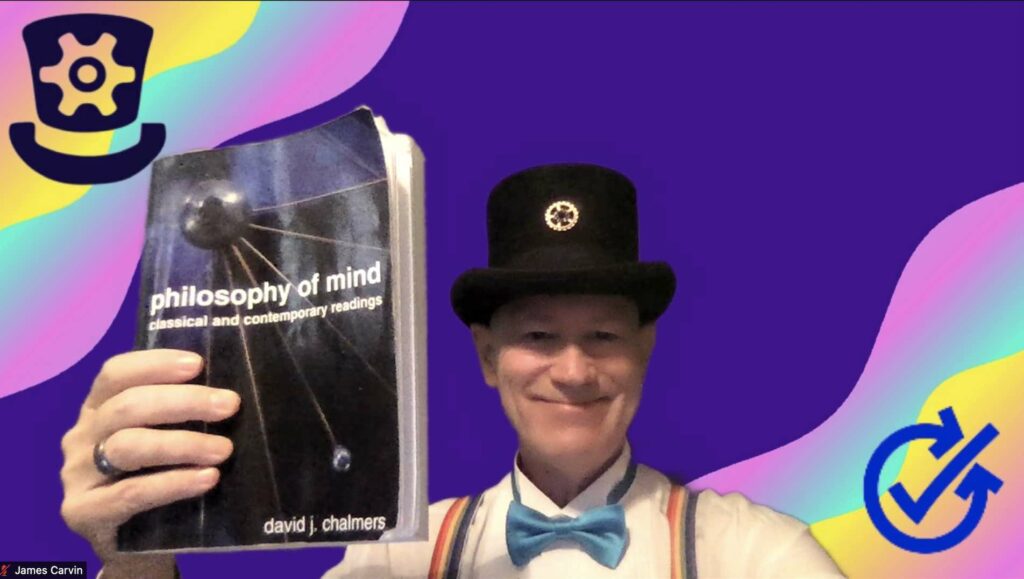
One of the most fascinating courses I took at Arizona State was called “Philosophy of Mind.” Our core textbook was an anthology compiled by David Chalmers subtitled Classical and Contemporary Readings. It offers tons of perspectives on how the mind body problem should best be understood. Chalmers himself, is credited with the term, ‘the hard problem of consciousness.” The gist of the problem is that a dominant view among the scientific community is that human evolution, biology and neuroscience, which are all theoretically subject to the laws of physics, the mother science, can solve the mind-brain question.
Question? What question, did you say? The question centers around whether there is a soul. Is the mind something other than the brain? René Descartes thought so. He thought that reason and the world of ideas, was not a physical process. It was all good entirely on its own. Truth was something separate from biology and physics. The world of ideas was not some physical process. Thinking might involve the brain. DesCartes thought that maybe the pineal gland inside the brain was the place where soul meets body. But neuroscience has come a long way since Descartes. But Chalmers isn’t concerned with the soul, so much as consciousness – a phenomenon we all agree exists because we experience it, but which physics has a hard problem explaining.
For the most part, the scientific community has abandoned belief in the soul. The mind, or soul, is considered a function of the brain. Thinking is presumably an entirely physical, material, process. To consider the mind to be something other than a brain process is now a minority, unorthodox view. Philosophers refer to it as dualism. Orthodox philosophy is monist. Everything can be explained through physics. Taken to an extreme, there is no such thing as free will. The whole Universe is set in motion like clockwork. Even the probability curves of quantum physics give fate the victory over self-determination. The devil didn’t make you do it. The inevitable momentum of the chemistry stemming from an endless chain of causes and effects of the Universe made you do it.
And if there is a God, God is not a good God. We talked about that in my last blogcast. Now it’s time to follow up and we’re going to do it by asking what the truth is regarding consciousness. In a thought experiment that assumed God was perfect, I showed why perfection might involve a world that had famines, disease, tragedies, injustices, strife and suffering. I presented what I call “the Pamalogist’s theodicy.” If the reason there is evil in the world is that Maximized Awesomeness means every possible good thing happens, and the relationship of good things to bad things is a good thing, then something at least looking like bad things needs to be real for the relationship to be real. That way, good things like forgiveness, healing, sympathy, compassion and helping those in need can take place. Death may be a bad thing, but if being raised from the dead is a good thing, then the latter can’t happen without the former. Maybe death itself isn’t required, but the relationship of death to the good thing – deliverance from it – must exist. Otherwise, every good possibility won’t be realized.
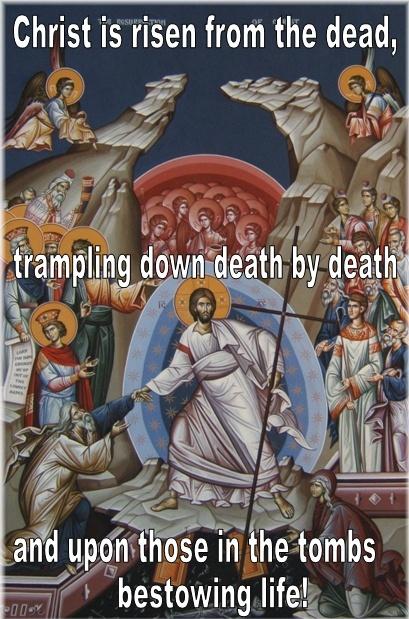
Now, it presents a sort of absurdity to say that death was not real, from whence someone has been raised, but the beauty of the resurrection is nevertheless just that. It’s beautiful. It is the manifestation of a wonderful power that says the limits of what we think of as the natural world, are not actually limits. That would be a good thing. Anyone who despairs at the thought that death is inevitable, would have some good news coming to them on discovering that death was no longer the victor as originally perceived. Such a good sense of relief couldn’t exist if it wasn’t thought that death was inevitable. And if that means that some good thing could only exist if death was at least perceived to be real, then the notion and belief in death, serves a good purpose. It makes that wonderful sense of relief possible. Death, or at least the illusion of death, is required if Maximized Awesomeness is real, so that every possible good thing can be realized.
What all this comes down to is that there is a reasonable compatibility between the notion of not just some weak or partly evil God, but of a Perfect God and what we actually see in the Universe. The two are compatible. The tragedies and travesties of this Universe do not, in fact, disprove the existence of an all-benevolent, wise, omnipotent, omniscient God. They are, in fact, normal. And please take note of the fact that I have not even had a discussion here yet about free-will. All I asked for, was that we design a Universe that would be in accord with a God that lacked no good thing – a God who could be described as Maximized Awesomeness.
From there, I fully expect the philosophical community to go at my arguments like the raptors at Jurassic Park. I don’t mind this at all. Whether they win or lose those arguments, it will bring attention to the Pamalogy Society, and that is my goal, especially if the philosophical community is the first to use the CounterChecker and helps administer it. Who loves truth more than philosophers, more than academics, more than the scientific community? We may not all agree on what truth is, but perhaps, unlike politicians, we’d still like to know for sure.
In offering that the Universe of a Perfect God might look just like ours, I am dismantling a very common assumption. Modern evidentialist orthodox philosophy is saying that a Perfect God apparently doesn’t exist. A majority of philosophers have rejected the God hypothesis.
As I said, most of these philosophers are physicalists. That is, they believe that the mind, and the world of thought, can be explained in physical terms. They may have trouble converting neuroscience to physics in terms of formulas, but fundamentally, they believe that everything that is real is reducible to the laws of physics. The fact that quantum physics now suggests that atoms don’t act quite like billiard balls, has not put an end to their expectation that every action involves an equal and opposite reaction, or that at least, for ever effect, there is some cause in the physical world of that effect. The subjective experience of the mind and of the world of thought, is thought of as an effect brought on by the neuro-physiology of brain states. Many have even supposed that specific brain states directly correspond to specific states of the mind, to specific thoughts, feelings and experiences.
The currents of opinion on this swirl along the banks of controversy and Chalmers himself, has been swimming upstream, as he keeps the cooled down waters of dualism flowing speaking of the hard problem of consciousness.
The problem is hard because causality is assumed. Neuroscience has been able to stimulate certain parts of the cerebral cortex, provoking predictable thoughts. Other parts of the brain can be neutralized for experiments. Brain injuries show correlations between regions of the brain and types of thought. The neuropsychologist, Mark Solms, has discovered that it is not the cerebral cortex, or the subcortext that is the source of consciousness. He thinks it is the brain stem. Those with severe damage to the cerebral cortex have still expressed self-awareness and reason. Even children born entirely without a cerebellum seem to respond with feeling and self-awareness to stimuli until the brain stem is severed by almost a centemeter. At that point all meaningful conscious awareness seems to disappear. He seems to think this turns Chalmer’s hard problem of consciousness into a softer one.
But Dr. Solms, like most other neuro-scientists, is only describing functionality in terms of cause and effect. He may be offering a how, but he isn’t supplying a who or a why., and without a who or a why, we can’t fully understand the what either. I’ll explain.
The idea in the physicalist materialist’s Universe, is that some 13.something billion years ago, there was a big bang. They haven’t yet figured out the cause of that big bang. As empiricists, they don’t feel the need to. They only believe in what they can observe. Theories are only real to them if they can prove them through testing. What they can observe is that there is an expanding Universe and that the Earth is spinning around a Star in a galaxy and a trillion other galaxies, where mankind seems to be alone in the Universe as a conscious type of biology that has evolved in peculiar ways so that brain stems and consciousness became useful for survival long enough to perpetuate a species so that it could reproduce and continue to exist to this day.
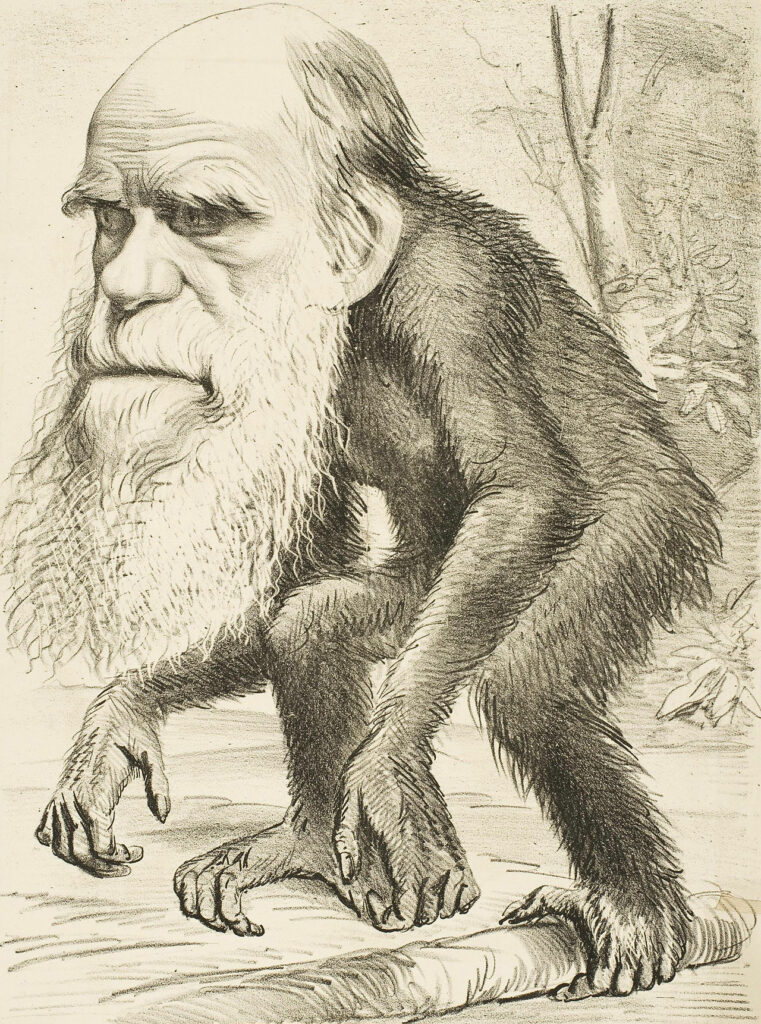
This is the general explanation for how consciousness exists. It exists for animals and humans the same way, through a spinal cord connected to a brain, sufficiently supplied with enough neural variety to produce awareness. Awareness, not just reflex, at some point in the history of survival, became useful. It became functional. That is why it lasted. No designer of any Universe was required. No other reason for being other than the Universe has its flukes and quirks and that happens to be one of them at this very moment in time is given beyond functionality. Awareness is somehow functional for the perpetuation of the species.
But like I said, that provides the how, but not the who or the why, and without these, we haven’t fully understood the what in what awareness really is. We may well experience it, but we don’t understand it. All Dr. Somos is really providing us with here, is an explanation of the vehicle for consciousness, saying it is the brain stem, specifically the reticular activating system – nothing more. He is not giving us an understanding of the whatness. He is, just like those who identified consciousness with the cerebellum and later evolutionary features of the brain, providing only an explanation of functionality. Who knew it was the brain stem that made consciousness possible, with or without a cortex? But what consciousness actually is, and what we actually are as conscious beings, he has no explanation for beyond explaining the function of survival.
In a previous blogcast, I showed why assuming time and space are primary and consciousness is secondary as to the cause of consciousness was most improbable. This doesn’t mean that the modern orthodox view isn’t an accurate description of functionality. It simply means there is another side to consciousness and to personal identity. Neuro-psychology may well explain how consciousness can exist. But it does not explain why your consciousness matches that specific brain and body. It doesn’t say why I am me or you are you. Why do I not experience your consciousness? Why do you not experience mine?
The general assumption is that we will live a short life and then die, as many already have. Others will later be born for a time, until the species is extinct. Mayb e new species will evolve but eventually that will be that. In all of that, we will experience nothing as soon as our brain stems deteriorate beyond their ability to support consciousness. Our “us”ness will disappear at that point as the effect of what brain stems do.
In saying that time is subject to consciousness, Pamalogy offers an explanation for time and for “we-ness” that neuro-psychology doesn’t offer. Our set of assumptions is very different. Taking seriously what we consider to be the logical necessity of all good things taking place through a Multiverse, we see the brain stem in evolutionary timelines as apt vehicles for experience. The self, or selves involved in experience utilize the brain stem to connect minds to sentient experience so that awesomeness can be maximized one moment of experience at a time, but not necessarily in a chronological order.
We would look at consciousness more like accessing a CD than a record player. It’s RAM – random access memory accessing the possible data of life. Whatever would be good if it were true is accessed by consciousness. There are many points in time in many Universes that are accessed by consciousness.
In this paradigm, time is relative. For a Universe, there may well be a 13.X billion year history with a trillion years of future ahead, but for consciousness, every moment of awareness is accessible, and not just in one Universe, but in many. This is the implication of what it means when I say that time is subject to consciousness, rather than the other way around. And such a view radically transforms what we mean when we speak of consciousness.
Now, I happen to think this is true. And if I am right, this is some very good news, especially if it is also true that evil is a mere construct given to every moment of consciousness. Any tragedy or injustice we may find in gaining awareness through any such functional vehicle such as a highly evolved brain in any Universe is actually, to us, at least, a mere mental construct. It is a product of the imagination of consciousness only. Our consciousness did not arise from its history. It arose from an extra-temporal Universe that we momentarily shared in an intra-temporal Universe in some point in space and time. The evil did not really exist in any Universe of our own. We just lent an imperfect Universe a moment of goodness, by choosing to do something, think something, feel something.
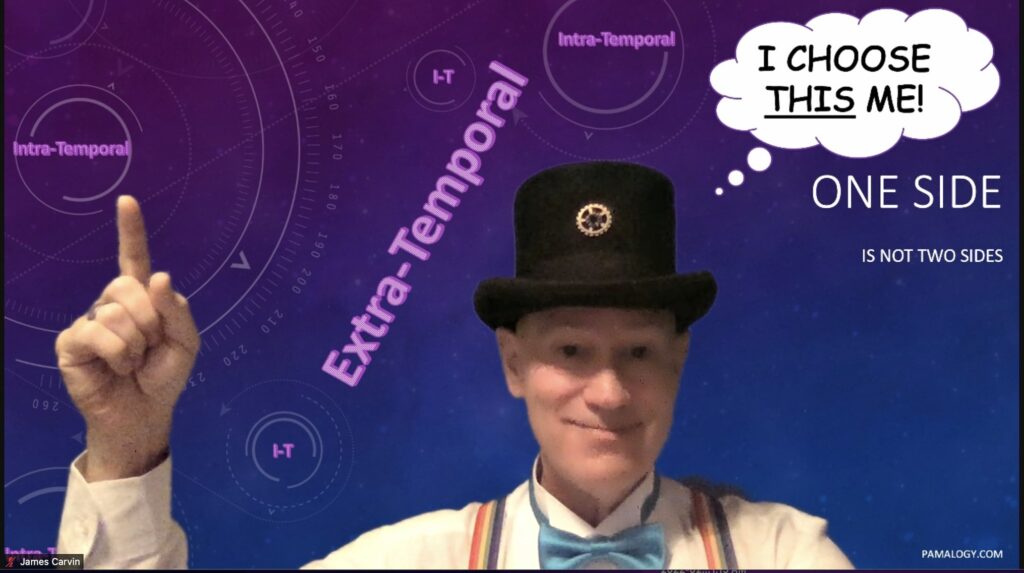
Notice I said choose. The neuropsychologist is not entirely sure that the world isn’t deterministic. As far as they are concerned, there may well be no such thing as freedom of choice, at all. This is because they are only considering a temporal Universe. Consciousness, if it is extra-temporal and extra-Universal, being dually associated by some convergence of mind and body, may well lack freedom to do anything other than what chemistry and physics dictate in a temporal Universe, but may still retain the freedom to choose which Universes and points in time to exist in in and of itself as a body-independent spirit. If so, consciousness itself would remain free as a phenomenon of some other Universe or set of laws that enable freedom according to any rules that follow for incorporality, perhaps having no law of causality than self-determination itself.
This is not a thing empirical science could test against since the neuropsychologist has no instruments to examine other Universes with. It is only something that foundational logic could determine – or not. And that is where the philosophical debate will take place for Maximized Awesomeology. If Maximized Awesomeness is true and can be proven to be logically necessary according to foundational l0gic, then the why we are looking for in consciousness will be uncovered. The reason why any conscious moment occurs would be because the opportunity for some good thing exists in it that is part of the totality of all possible good things.
Then understanding the why, the what of consciousness can also be explored. We may see the process and functional cause within the temporal sphere of what enables that consciousness in a point in time and space through empirical science and the theory of evolution, but the fact of “me” or “you” being that particular body in time or space is better explained as part of something extra-temporal. Otherwise, it is excluded from probability by abduction. Your “you” in that body is most improbable if “you” as consciousness is subject to time. If time is a 80 trillion years, and a lifespan is eighty years and it is subject to time, then the odds are one in a trillion there will be a you at any given time. Whereas, if you, as consciousness, always exists and repeats all points of time corresponding to your body life in however many Universes, then the odds are 100% that you will be conscious at all times. There will not be any time in which you are not alive.
And quite importantly, if the evil you think you see is not real, then that would be a good thing. It only remains for you to choose to do something good with the opportunity you have in any given moment. Contributing to glory by participation in all that could be good and what lacks no good thing. Such is the logic of Maximized Awesomeness. If evil is a mere human construct or illusory memory to which we respond or relate in the things that we do that are good, Awesomeology fits like a glove into the Universe we see. The philosopher has no room to say the God theory is a thing of the past. Since good things come of the relationship to bad things – good things like forgiveness, healing and compassion for those who suffer and striving to correct wrongdoing and injustice – since these good things can’t exist without some relationship to the evils that prompt them, they are necessarily part of a world Maximized Awesomeness would likely design, given the framework I’ve described. Evil is something we should expect to see. Rather than being a proof that God does not exist; it is consistent with God’s existence.
As for freedom, this is a very good thing too. We should expect some way to break away from physicalist determinism. We should expect moral culpability to arise from some form of real choice. If the physical world doesn’t provide it. If chemistry makes us do it, we might ask why we punish criminals. The momentum of the Universe is really at fault. It was fate. It was destiny. But if the spirit that is the pronoun behind consciousness is a true moral agent, operating in freedom that is independent of any temporal world, merely serving as its reason for existence as a construct, then anything evil it chooses to do, given that opportunity, surely deserves some sort of punishment.
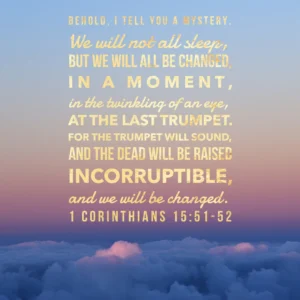
This presents a different sort of problem of evil. How can even an incorporeal spirit, or one that participates corporally in the conscious functionality of many bodies in many Universes, be thought to do only that which is good, yet at the same time have the freedom to choose to do either evil or good?
Let me express this question another way – a way you are more likely to have asked before. When your friend reads the Bible and tells you she’s going to heaven and there won’t be any sin or suffering there, do you ever wonder how it is that a new incorruptible nature can be acquired in the resurrection? How is it that we can have freedom here and choose to sin so often, but in heaven, we manage to never sin again a single time forever? What sort of nature must we have in the resurrection that prevents us from sinning ever again? If we can never sin, are we free to sin? Does that make us obedience machines? Where is the freedom in that?
Have you ever asked questions like this? In my next blogcast, I’ll explore some answers offered by Pamalogy. We can then bring this response to the truth machine for a little dialectical polishing. I’m thoroughly convinced that I’m right about this, having given it some considerable thought through the years, but I’d like to process the whole system of thought through the CounterChecker with the help of my critical peers in philosophy. I have confidence that my own thoughts will be improved through the machine. My truth and your truth may not be the same, but our truth – that may just be something we can all agree on. Ciao!
URL for sharing this transcript page: https://pamalogy.com/2022/01/03/connection/
URL for sharing this podcast: https://player.captivate.fm/episode/872d4e13-fe79-4569-badd-0ee7f02696c6
URL for sharing just the audio file: https://podcasts.captivate.fm/media/13ba32bf-f51a-4c0c-aef9-0fd62eb41e41/episode9-connection.mp3
Previous: Design
Up Next: Incorruptibility


